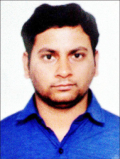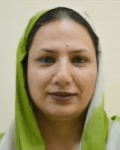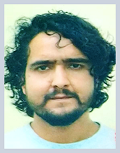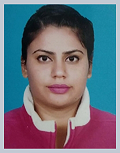Research Centers
1. 5G and IoT Lab
Project Investigator/Coordinator: Dr. Rakesh Kumar Jha, Associate Professor-SoECE& Dean[R&D]
Established in 2017 with the collaboration of Intel, funded by DST-TBIC, Intel, and TEQIP-III
- Headed by Dr. Rakesh Kumar Jha, Dean, R&D.
- Published research paper in many reputed journals of IEEE, Elsevier, Wiley and Springer. Overall, there are 7 transactions papers, 30 SCI’s which also include IEEE Letters and 5 patents. Golden feather for lab is MOST POPULAR IEEE journal paper entitled, “Survey of 5G network: Architecture and Emerging Technologies”.
- Three successful and informative workshops organized till date.
- 5-day workshop on IoT, 5-day workshop on SystemVue and two-day Hanson workshop (and Signal Generator) on signal analysis.
- The Lab is established with the vision of empowering a new world of embedded innovation and fast-track realization of Digital India initiatives & to aid in development of health-care, agriculture-based, vehicular-based applications to support the Indian start-ups and industries.
- Hardware: Signal Generator with capability of 6 GHz signal generation and Signal Analyzer (10 Hz-44 GHz) and is equipped with 5G testbed, NB-IoTtetbed, Intel-based IoT Kits and high configuration systems
- Software : System Vue, MATLAB (2017), NI-Lab Vue and Vector signal Analyzer (VSA).
2. DBT Sponsored- BIF Centre (PR-15)
Project Investigator/Coordinator : Dr V.Verma , Professor-SoBT
- The Bioinformatics Infrastructure Facility (BIF) Centre at Shri Mata Vaishno Devi University, Katra started functioning from October, 2008 with Prof.(Dr.) V.Verma as the project co-ordinator. The centre is currently fulfilling the needs of more than hundred UG & PG students, more than fifty research scholars and faculty of the School of Biotechnology. In addition to this research scholars and faculty of other departments of the university as well as from nearby institutes/universities also use the BIF facility. Our BIF Centre is actively involved in Bioinformatics training programs to both in-house and external students of the region via regular yearly workshops organised. The resource people invited for the workshops are reputed scientists, faculty from the academia and industry. School of Biotechnology in association with BIF is working on the areas of NGS analysis of the metagenomic DNA isolated from the extreme unique niches of North Western Himalayas, Computational Molecular Dynamics Simulations studies in the broad field of Cancer marker proteins, Studying the mechanisms of inhibition of drug-like compounds of the important drug targets of Mycobacterium tuberculosis like FtsZ ,DnaGprimase and pantothenate synthase, and Genetics of Rare Human Disorders.
- Microbial taxonomical characterization of the metagenomic DNA, isolated from the frozen soil sample of a glacier in Northern Western Himalayas (NWH), was analysed through next generation sequencing. The community was found to be comprised of 16 phyla with representation of members belonging to Proteobacteria, Acidobacteria, Verrumicrobia, Thaumarchaeota, Actinobacteria, Bacteriodetes, Chloroflexi, etc. At the genus level Bradyrhizobium was the most abundant as compared to other genera like Candidatusentotheonella, Nitrospora, Candidatussolibacter, Gemmatimonas, Ktedonobacter. The number of genes annonated through KEGG, GO, Pfam, COG, FIG databases were generated by COGINZER. The annotation of genes assigned in each group from the metagenomics data through COG database and the number of genes annotated in different pathways through KEGG database was also being reported. Besides, a number of gene ORFs have been identified which are being exploited for commercial purposes after cloning these in suitable cloning & expression vectors.
- Researchers of our group identified and characterized – a hydrolase with esterase activity expressed from a fosmid gene bank prepared from DNA of a North West Himalayan glacier frozen soil sample.An efficient protocol for increased Fosmid transformation in preparation of Metagenomic gene bank has been proposed. Besides, study on the thermos-stability of lipase from marine Streptomyces using atomistic molecular dynamics simulations.
- Mechanism of inhibition of benzimidazoles in Mycobacterium tuberculosis–FtsZ (an important drug target and cytoskeletal cell division protein) by employing docking, molecular dynamics simulations and MMGBSA analysis was proposed. Study has been carried out to model Dna G primasea potent Mycobacterium tuberculosis (Mtb) target and employ in silico virtual screening to identify potent inhibitors against it. Another important drug target inMtb. Panthothanatesynthasehas been studied and various chemical libraries have been screened against it to identify the novel inhibitors which could be studied and validated in the wet lab. The BIF at SMVDU has been associated with the collaborations with the international universities of repute like the Department of Molecular Medicine and USF Health Byrd Alzheimer’s Research and Institute, Morsani College of Medicine, University of South Florida, University of South Florida, Tampa, FL, USA and Laboratory of New Methods in Biology, Institute for Biological Instrumentation, Russian Academy of Sciences, 142290 Pushchino, Moscow Region, Russia.
- The staff recruited in BIF is actively participating in the various national and international conferences, workshops and meetings in India and abroad to broaden the vision on the latest developments the field.
- The Centre is also actively catering to the needs of the students, research scholars and the faculty of the School of Biotechnology. Workshops that have been organized in past years for the training of the in-house as well as research scholars and faculty of various guest Institutes/Universities has been a continuous success. In addition to this regular visit of Graduate Schools of region is also promoted. The students are given a flavour of Molecular Dynamics Simulation and Drug Designing that do not have access to the computational resources. Students can also take down our Molecular Dynamics Simulation trajectories for research and training purpose. Recognizing the role of internet and websites like YouTube in learning and teaching we have started working on the making of learning videos in the field of Biotechnology and Bioinformatics that would be soon uploaded on our YouTube Channel.
Database developed
| Name |
| Microbial community data base of the metagenomic sample of one of the glaciers of NW Himalayas under preparation. |
Bioinformatics infrastructure available at centres
| Hardware | Software |
| Computer hardware: High end workstation HP Z600 Intel Xeon 6-Core with QuadroNvidia Graphic Processing Unit. | Computer Software: DNASTAR Lasergene, (Version 8 updated and new version 11), |
| HP Z210 Intel Xeon 4-Core workstation, high end server Sunfire x400. | PyRx 0.9.7, Amber Molecular Dynamics Package (Stanford University), |
| M2, Entry level server Sunfire x2200 | Open Source software’s like PyMOL, AUTODOCK, GROMACS molecular dynamics package, Desmond molecular dynamics package, GMXPBSA, g_MMPBSA etc., tripos SXBYL-X |
| M2, Workstations Sunultra 20 M2 (4 Nos.) | Licensed system softwares like Windows 7, Red Hat, MS Office, Visual Studio etc. |
| Desktop Computers Dell Make (12 Nos.) | |
| Video Conferencing system (Sony Make) | |
| Scanner (HP Make) | |
| HP laserjet Printer | |
| Photocopier (Canon Make) | |
| Online UPS 5kva (Apc Make) |
3. ICMR-Centre for Advance Research (CAR) (RP-106) “To Address & Promote Human Reproductive Health inJammu and Kashmir Region”
Project Investigator/Coordinator : Dr. Rakesh Kumar, AP, SoBT
- For the first time in the history of Jammu and Kashmir, four of its Universities have been sanctioned a major research funding to the tune of Rs. 9.1crores to establish a Multi-institutional Centre for Advance Research (CAR) in Human Reproductive health by the Indian Council of Medical Research (ICMR), the apex body for the formulation, coordination and promotion of biomedical research in India. The participating Universities include; Shri Mata Vaishno Devi University, Katra, University of Jammu, Central University of Jammu and University of Kashmir. The Lead Investigators of the Centre include, Dr. Rakesh Kumar from School of Biotechnology, SMVDU; Professor Manoj Dhar, School of Biotechnology & Institute of Human Genetics (presently Vice Chancellor), University of Jammu; Dr. Audesh Kumar from Centre of Molecular Biology, Central University of Jammu and Professor Raies Qadri, Department of Biotechnology, University of Kashmir. Dr. Swarkar Sharma of School of Biotechnology, SMVDU Katra and Dr. Sanjana Kaul from School of Biotechnology, University of Jammu are co-investigators in their respective centres.
- SMVDU has been nominated as the Nodal centre, with Dr. Rakesh Kumar as the co-ordinator of the centre and all other centres will be designated as Sub-Centres.
- A detailed understanding of health challenges, especially in the area of Reproductive Health, need to be addressed within the state of J&K to ensure that policies implemented in the area receive appropriate response and result in a fruitful outcome.Incidentally, there is no concrete researched data available in the public or medical database regarding the incidence of infertility or birth defects in the populations of Jammu and Kashmir.
There is no published data from Jammu region.
The center has following objectives:
- Training and skill development: Human Resource Development.
- Encouraging Inter-Institutional Collaboration: Development of regional networks.
- Education and Awareness: Data Collection and Compilation.
- To access and evaluate the incidence and prevalence of Reproductive health disorders/diseases in the state of Jammu and Kashmir.
- Genetic analysis of the recruited subjects.
The Institute will be recognized as a ICMR Centre of Advanced Research in Reproductive Health (CAR), SMVDU, Katra “To Address & Promote Human Reproductive Health in Jammu and Kashmir Region”for Research and Training in Reproductive Health, and also as a centre for Training in Diagnosis and Management of Infertility and spontaneous Abortions.
4. Geophysics R&D programme
Project Investigator/Coordinator : Dr. Sunil K. Wanchoo, Associate Professor, SMVDU
- Multi-Institutional collaborative programme between SMVD University Indian Institute of Science Education and Research Kolkata (IISERK) and University of Cambridge (Cambridge).
- Prof. Supriyo Mitra (IISERK)
- Prof. Keith Priestley (Cambridge)
- Dr. Sunil K. Wanchoo, SMVDU
- Largest filed experiment of its kind in NW Himalaya.
- A field intensive program with a network seismographs (20) and NaVIC receivers (12) installed in the States of J&K and HP.
- One Ph.D. student each in SMVDU and IISERK about to submit their thesis.
- Several projects with a cumulative grant of several crores have been implemented by the collaborating team. The funding had been received from both National and International funding agencies:
- UKIERI-UGC thematic partnership scheme
- UGC, New Delhi
- NERC, UK
- Royal Society London
- ISRO
- Enormous amount of data generated from the experiment being jointly analysed.
- Several outreach activities have been conducted by the group in the State of J&K involving international resource persons from UK and USA.
- A tri-patriate MOU has been approved by three collaborating institutions and is being signed shortly.
5. Cancer Genetics Research Group (CGRP)
Project Investigator/Coordinator : Dr. Rakesh Kumar, AP, SoBT
Co-PI: Dr. Swarkar Sharma, AP, SoBT
- CGRP a group of 7 dedicated PhD Scholars is working under the Supervision of Dr. Rakesh Kumar, Assistant Professor and Coordinator, CGRP SoBT, and ICMR-CAR, SMVDU.
- Area of work: Lung cancer, Ovarian Cancer, Breast Cancer, Colorectal Cancer and Leukemia.
- CGRP has produced 24 master thesis (M.Sc. Biotechnology) on cancer biology.
- CGRP is presently working in collaboration with Ohio State University, Columbus Ohio, USA, Houston Methodist, Houston Texas, USA, BARC, Mumbai, IISc, Banglore, AIIMS, New Delhi, NBRC, Gurgaon, IIIM, Jammu and CCMB Hyderabad.
- A patent in collaboration with Dr. Swarkar Sharma regarding ‘Novel Method to detect the Telomere Length’ has been submitted.
- CGPR has secured 12 Awards and has received funding for various Research Projects by JK-DST, SERB-DST, DST-GoI and ICMR-GoI amount to 12.0 crores and has established Facilities like Tissue culture and Advance Microscopy Labs at SMVDU.
- CGPR has submitted more than 14 papers in peer reviewed high impact journals of which 3 papers have already been accepted in 2018 and 4 are undergoing second revisions.
- The findings obtained on the basis of various samples collected from different hospitals of J&K, will provide an insight in understanding the genetic etiology and highlights the role of associated pathways in North Indian population.
- As a societal responsibility, CGPR held a mega cancer awareness camp at Mata Kheer Bhawani, Kashmir on 1st June 2016, in which more than 5000 people participated and organized “ ” in the University campus
6. SMVDU -Human Genetics Research Group (HGRG)
Project Investigator/Coordinator : Dr. Swarkar Sharma, AP,SoBT, Dr. EktaRai, AP, SoBT, Dr. Vinod Singh, AP, SoBT
- Human Genetics Research Group (HGRG) is established in Central Mass Array facility of SMVDU.
- Area of work: Human Evolutionary Genetics, Rare and Undiagnosed Human Genetic Disorders, Complex Genetic disorders like Idiopathic Scoliosis, Autoimmune Disorders, Type 2 Diabetes.
- Human Genetics Research Group(HGRG) has received research grants from various external Funding agencies: DST, GoI; UGC GoI, CSIR GoI; National Geographic Society, USA.
- HGRG is member of International Consortium for Spinal Genetics, Development and Disease (ICSGDD) and works in collaboration with various national and International collaborators.
- 05 patent have been filed by HGRG to Indian Patent Office, GoI:
- a. Patent no. 201811041582 “PCR TaqMan assay based Kit for Telomere length measurement”.
- b. Patent no. 201811020588 “A Polymerase Chain Reaction (PCR) kit and process for making the same”.
- c. Patent no. 201811014220 “Technical Modifications for a Cheaper HyperthermicIntraperitoneal Chemotherapy (HIPEC) Device”.
- d. Patent no. 201711043149 “A Novel Strategy to Increase The Biogas Production.”
- e. Patent no. 201711033513 “Electrical Conductivity Based Detection and Quantification of Presence Of Proteins in Blood/Body Fluid Samples”
- HGRG has Published more than 21 Publications in Peer Reviewed SCI Journals (Since 2012) including high impact journals like Nature and Cell Press with total Impact factor of 106 and Average Impact Factor: 5.58

 SMVDU Research Scholar bags Second Position in the 3-minute Thesis (3MT) Competition...
SMVDU Research Scholar bags Second Position in the 3-minute Thesis (3MT) Competition... SMVDU, Faculty Delivers the Lecture in Short Term Training Program...
SMVDU, Faculty Delivers the Lecture in Short Term Training Program... SMVDU Researcher Declares Qualified for the Award of PhD...
SMVDU Researcher Declares Qualified for the Award of PhD... SMVDU Faculty Excels with “Young Faculty in Architecture” award...
SMVDU Faculty Excels with “Young Faculty in Architecture” award... Dr. Jindal of SMVD University conducts a session at NITTTR Chandigarh...
Dr. Jindal of SMVD University conducts a session at NITTTR Chandigarh... SMVDU Faculty Dr. Rasool bags Award in International....
SMVDU Faculty Dr. Rasool bags Award in International.... Mr. Yogesh Declares Qualified for the Award of Ph.D....
Mr. Yogesh Declares Qualified for the Award of Ph.D.... Ms. Rohini Raina, Scholar Bags Best Paper Award at Intl Conference...
Ms. Rohini Raina, Scholar Bags Best Paper Award at Intl Conference... Ms. Pooja Khajuria Declares Qualified for the Award of Ph.D....
Ms. Pooja Khajuria Declares Qualified for the Award of Ph.D.... SMVDU, Students Present Papers in an International Conference...
SMVDU, Students Present Papers in an International Conference... SMVDU Student selected for the Google Summer of Code 2023...
SMVDU Student selected for the Google Summer of Code 2023... Mr. Sushil Kumar Trisal declares qualified for the Award of Ph.D....
Mr. Sushil Kumar Trisal declares qualified for the Award of Ph.D.... Ms. Navleen Kour has been declared qualified for the Ph.D....
Ms. Navleen Kour has been declared qualified for the Ph.D.... Ms. Shipra Misra has been declared qualified for the Ph.D....
Ms. Shipra Misra has been declared qualified for the Ph.D.... Mr. Arjun Puri Declares Qualified for the award of Ph.D....
Mr. Arjun Puri Declares Qualified for the award of Ph.D.... Mr Sajid Ali Rather declares qualified for the Award of Ph.D....
Mr Sajid Ali Rather declares qualified for the Award of Ph.D....